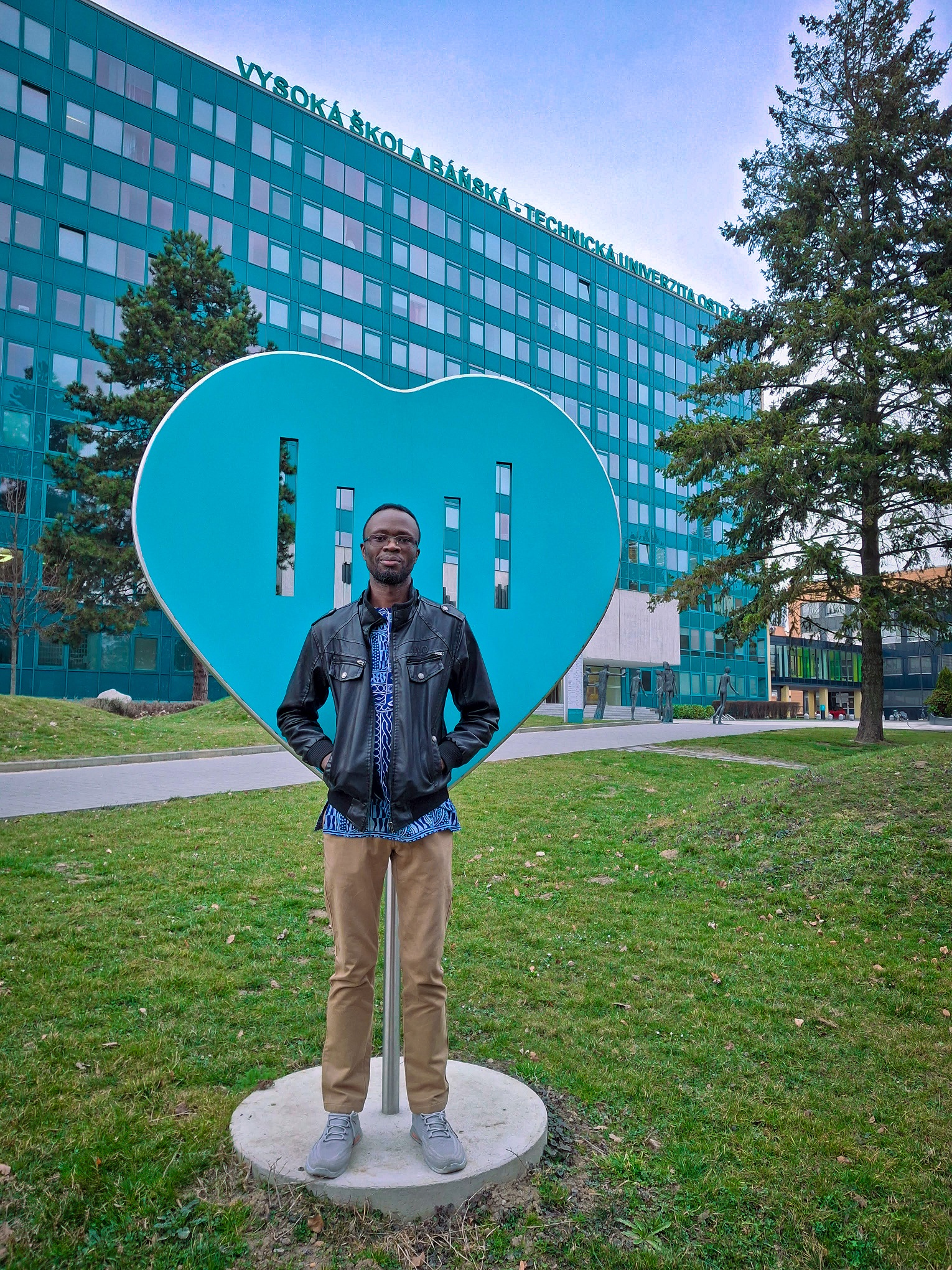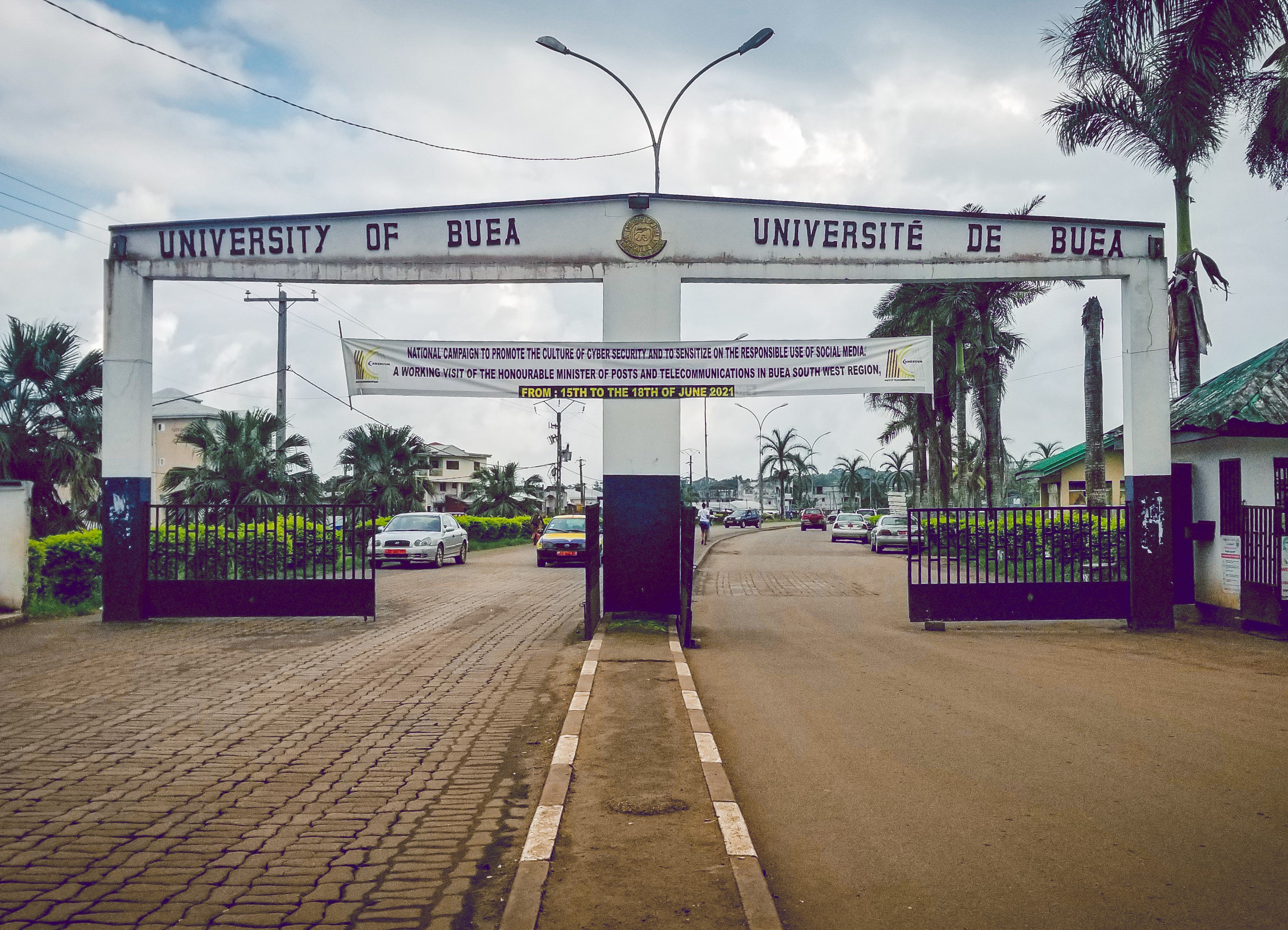Between two worlds: The Cameroonian student reflects on the Czech people, our educational system and even wonders back to his homeland
Tantoh Henry is currently studying his second semester at the Faculty of Mining and Geology at VŠB in Ostrava. Here, he builds up further on his master’s studies at the prestigious University of Buea in the Southwest region of Cameroon. If we had delved deeper in his history, we would have discovered that his educational path took him across nearly half of Cameroon’s regions. Now, however, fate has brought him to the heart of Europe. Why did he choose such a distant destination? And how has Czech culture impacted him?

University Environment
The University of Buea, located in the capital city of the same name in the Southwest region, enriched Henry with a great education beginning. „It’s the best university in Cameroon, offering a variety of programs. I earned my master’s degree in geology there,” Henry says, showing me a photo of the university - a modern campus resembling Europe's universities.
„In Cameroon, the annual tuition at a public university is 50,000 Central African CFA francs, which is equivalent to two thousand Czech crowns,” I raise my eyebrow in surprise, to which Henry quickly responds: „But at private universities, that's where you pay around 50, 000 Czech crowns a year.”
Teaching Methods
The teaching methods in Cameroon differ a lot from the Czech. „We build so much on theory, taught from step one to step two in a sort of chronological manner. Here, it is kind of mixed together, not following some strict structure. But what I appreciate is that there are more practical,” Henry observes. He admits that he’s still getting himself adapted to the new system and also to the fact that he is the only one in his class. „There are not so many students who apply for, I am basically the only one in my class. It makes everything easier, because I can have a one on one conversation with a teacher.”

Lead - in steps to application
Shortly before his departure, Henry looked back to his early school days, which, in a way, led him to where he is now. „In my secondary school in Mbatu, we had to do a project about the history of Czechoslovakia. How the first world war came about, that Czechoslovakia was under the soviets and when the soviets broke up, you and Slovakia separated, but still you are brothers and sisters,” he recalls.
But what drew him to distant lands even more was his passion for travelling. „I always wanted to study out of the country. I love experiencing other people's culture. I want to know how people in other countries live, what is their mentality, and how they reason. I like to explore,” says Henry, a travel enthusiast. Following his instinct, he sent out applications and waited to see where he would be accepted - and his final destination turned out to be Ostrava, where he is digging further into the study of rocks - applied geology.
What draws Cameroonians there?
Henry is not the only foreign or African student at VŠB, proving that the Czech Republic holds some appeal for international students who may even see potential for settling here in the future. However, Henry opposes this statement, saying that most of the Africans primarily come here for education and don’t plan to stay. Like him, many expand on their university degrees because the Cameroonian job market isn’t always open for university graduates. „For an educated person, finding a job in Cameroon is tough. Most positions are occupied by old people or incompetent ones who do not demand higher wages. Also the companies are unwilling to hire somebody new. Sometimes young people with master’s or higher degrees work as taxi drivers, or in some delivery service,” Henry explains.
He even shares an absurd personal example: „After graduating from university, I applied for a position as an environmental engineer at a waste recycling company, but they told me they couldn’t afford to pay me as a master’s graduate. However, they did offer me the chance to work for free,” Henry says with a laugh, even today.
Overall, Henry describes the Cameroonian job market as badly structured. He says people are walked out for a very little amount of money - and even that small amount is not always paid in full.
Cultural Differences
Unlike cheerful Africans, Czechs are more reserved and quiet. „From my experience so far, it seems like Czech people do not like to greet, because sometimes you greet somebody and get no answer back. In Africa we always say: Hello, good morning, how are you? But here everybody is looking so serious and straight forward. It leaves me wondering that maybe I should also become more serious,” Henry says with a smile as he is coming from a culture where greeting strangers on the street is normal.
With a Clear Mind
Henry insists that he wasn’t afraid of anything before arriving - neither the climate change, nor the new society. From his perspective, the most important thing is to have a clear mind and not take others’ opinions too seriously. „I know that there are some people still living in the nutshell of racism, but the issue of race is just a psychological mindset. We all have the same blood flowing in our system. The only difference is that we have melanin and you do not. We are one human race, one people, and we are not supposed to be divided because of the skin colour,” Henry says, adding that this is something everyone should realize.
Judgment from Czechs
Unfortunately, Henry has also faced prejudice surrounding his skin colour here, in the Czech Republic. „Sometimes, there’s a free seat next to me in the bus, but no one wants to sit there. Or somebody does not want to get in the elevator with me,” he shares. Nevertheless, Henry has found a way to deal with it: „I don’t bother myself with what others think. If I see a free seat in the bus, I’ll sit down, no matter who’s next to me.”
Text: Anna Dubovská
Photo: Tomáš Sláma/Tantoh Henry